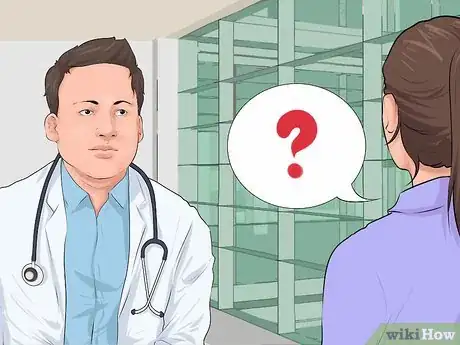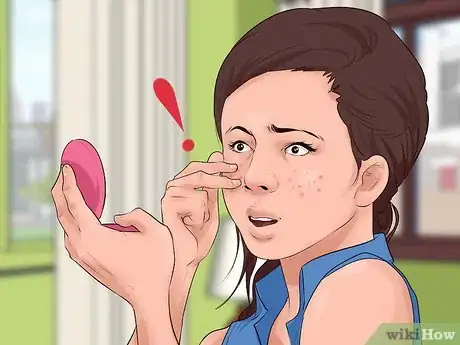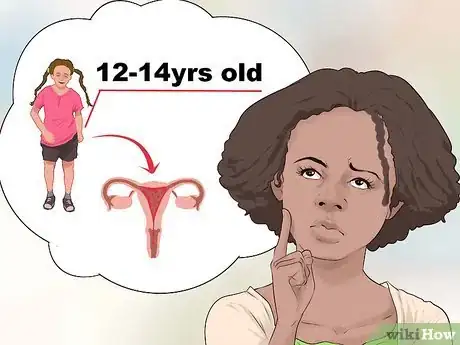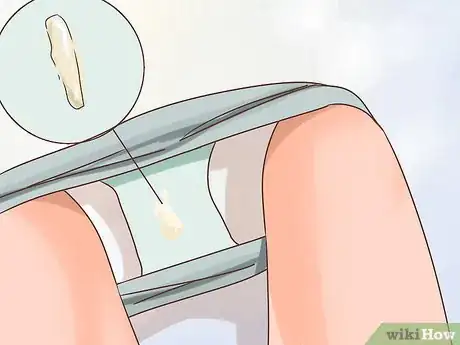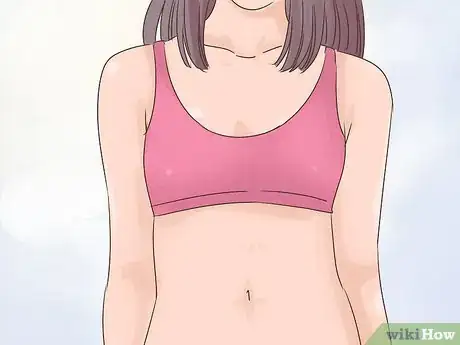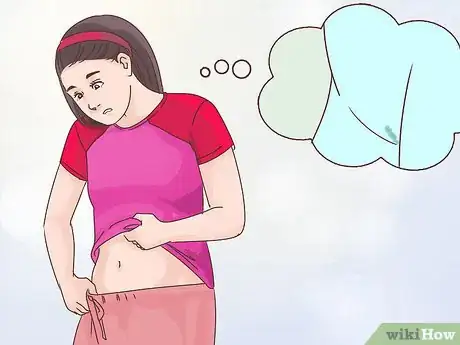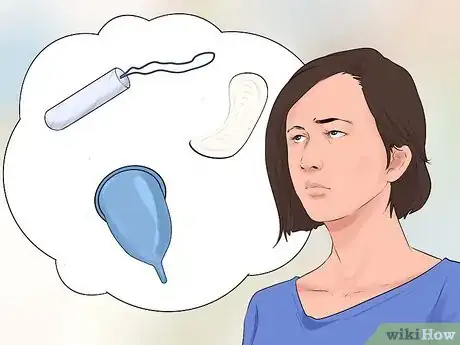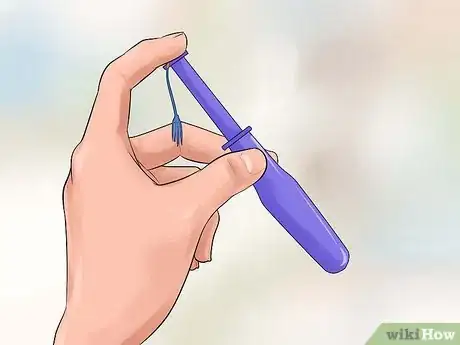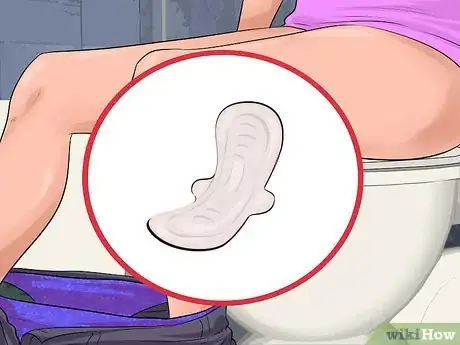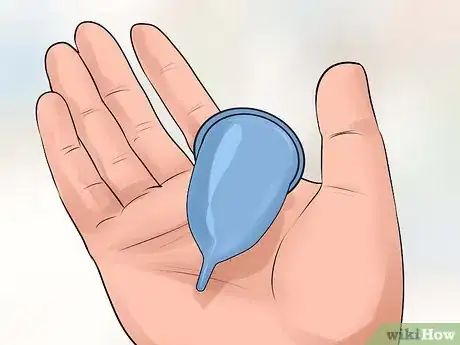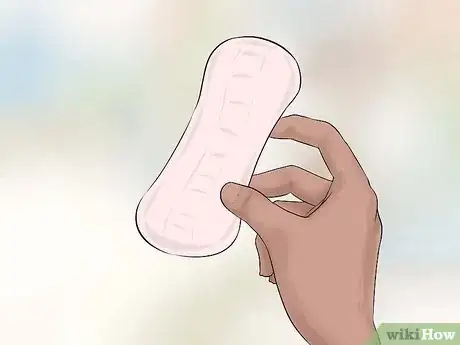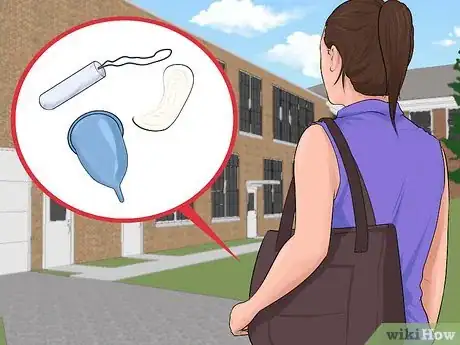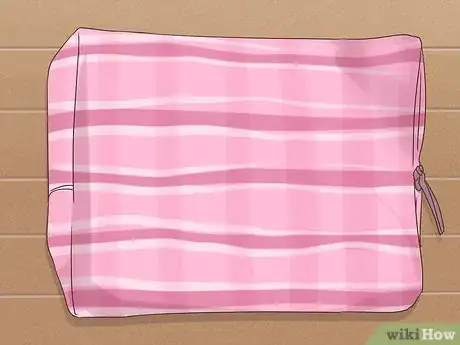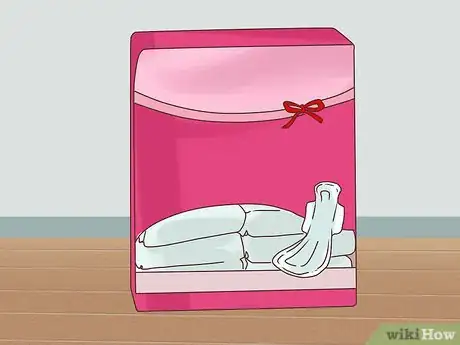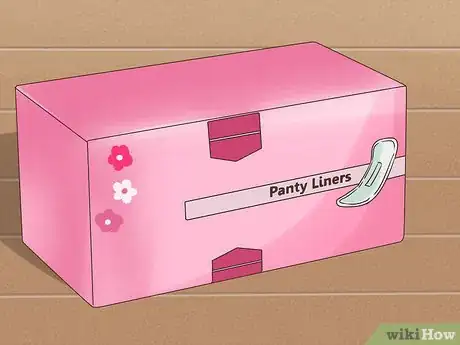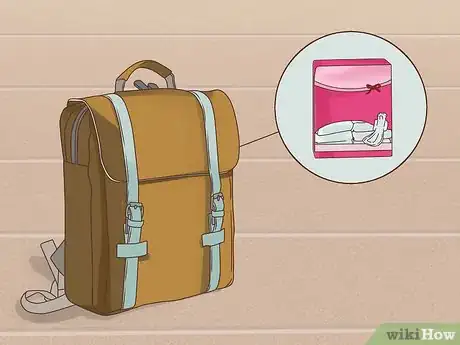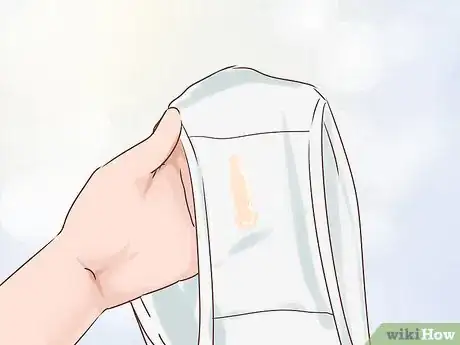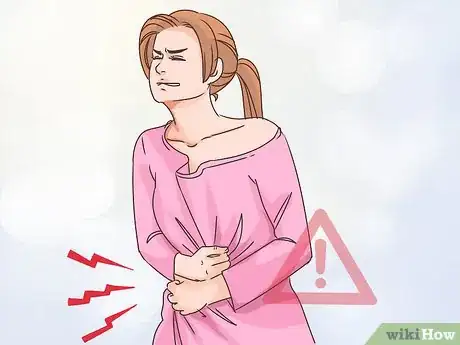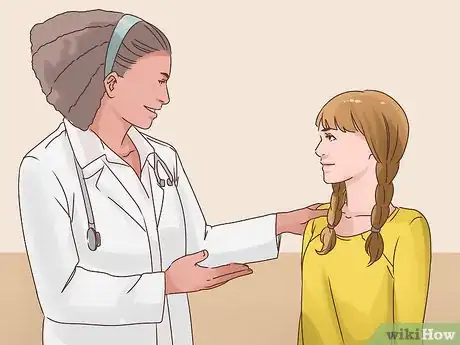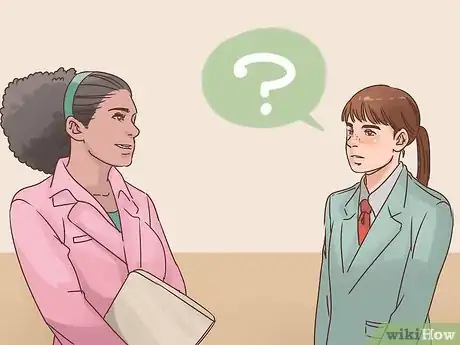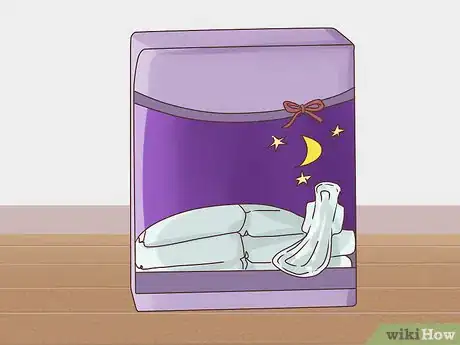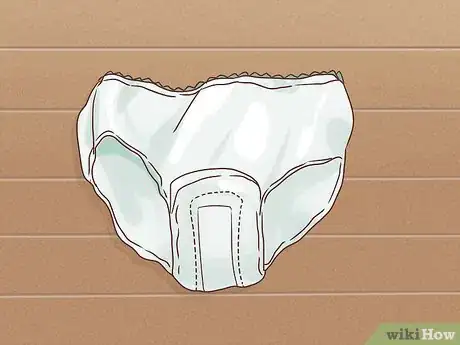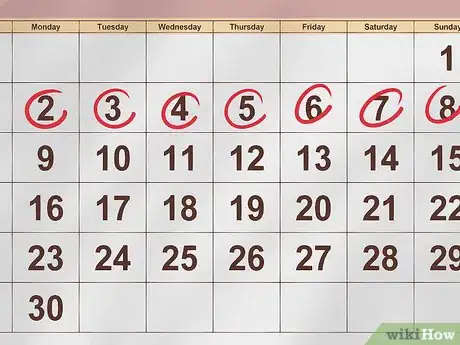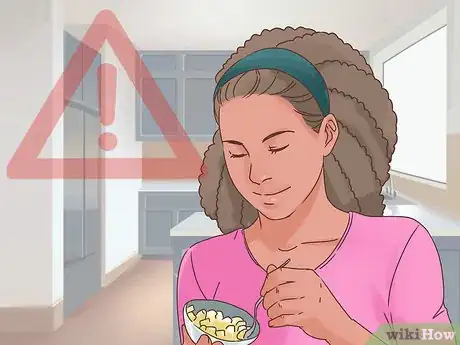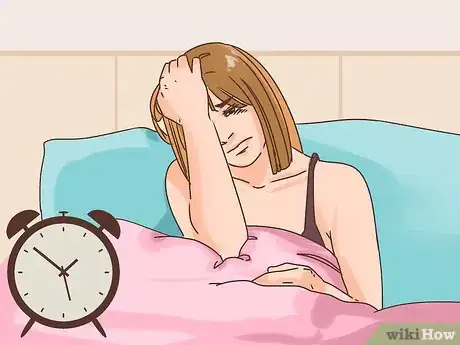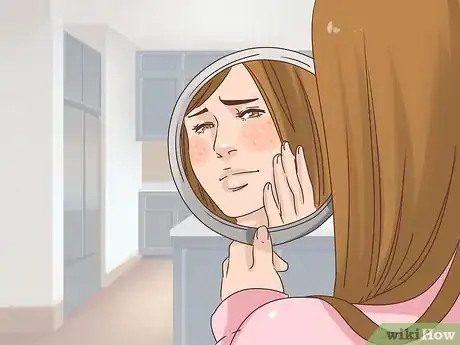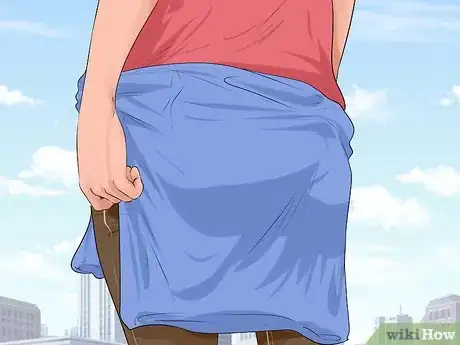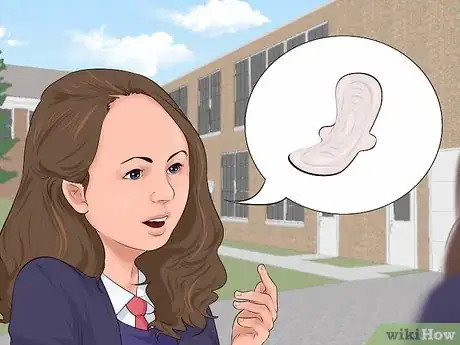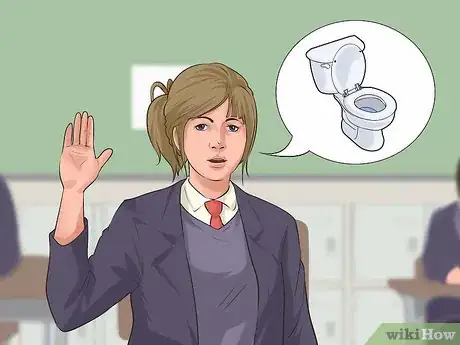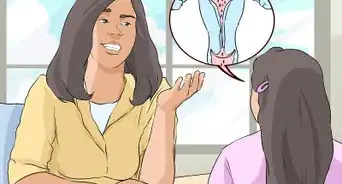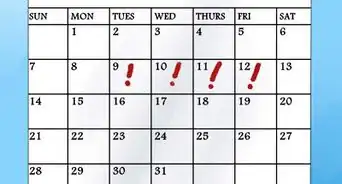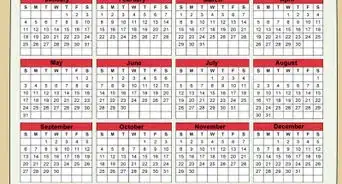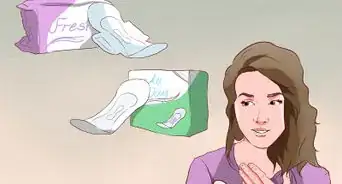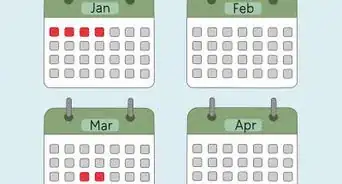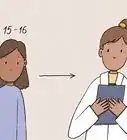This article was co-authored by Rebecca Levy-Gantt, MPT, DO. Dr. Rebecca Levy-Gantt is a board certified Obstetrician and Gynecologist running a private practice based in Napa, California. Dr. Levy-Gantt specializes in menopause, peri-menopause and hormonal management, including bio-Identical and compounded hormone treatments and alternative treatments. She is also a Nationally Certified Menopause Practitioner and is on the national listing of physicians who specialize in menopausal management. She received a Masters of Physical Therapy from Boston University and a Doctor of Osteopathic Medicine (DO) from the New York College of Osteopathic Medicine.
There are 15 references cited in this article, which can be found at the bottom of the page.
wikiHow marks an article as reader-approved once it receives enough positive feedback. This article received 19 testimonials and 98% of readers who voted found it helpful, earning it our reader-approved status.
This article has been viewed 152,703 times.
You're walking down the school halls and it hits you by surprise; you got your period! Sometimes it can seem like you get your period at the most inconvenient of times, but if you are well prepared, you can prevent it from ruining your day. This is how to prepare for a period at school.
Steps
Knowing What to Expect
-
1Talk to your doctor. When you go to the doctor for a checkup, they can examine you and see how you are developing. The doctor may be able to predict around when your period may start. This can help you be more prepared. You should also take this time to ask your doctor any questions you have about starting your period.[1]
- Do not feel embarrassed by any questions you may have. Your doctor is used to questions and is there to help you.
-
2Notice any physical symptoms. Before your period starts, you may experience breast tenderness, cramping, stomach bloating, and acne. You may not experience any symptoms the first time you have your period though.[2]
- Ask your parent about a heating pad or taking pain medicine to help with your symptoms.
- The older you get, it will be easier to tell when your period is coming.
Advertisement -
3Recognize when your period starts. Your period will usually begin between the ages of 12 and 14 and above.[3] Menstrual blood will begin to come out of your vagina. This blood can be different shades of red and brown and may include clots. If you have not gotten your period by the time you are 15, you need to talk to your parents and your doctor.[4]
- If you feel any wetness, go to the bathroom to see if your period has started.
- Your first period may only last for a few days and be very light. You may only see some reddish and/or brown spots. It should last from two to seven days.[5]
- You can wear panty liners if you suspect that your period may be starting soon. This will protect your clothes until you can use a pad or tampon.
-
4Predict when your next period may start. Your menstrual cycle begins the first day that you bleed. A cycle usually lasts between 21 and 45 days. The average cycle is 28 days. It is helpful to mark on a calendar or use a phone app to keep track of your period. You will begin to recognize a pattern and know when your cycle will start.[6]
- Mark the first day your period starts, and then count the days until you bleed again. This will help you figure out the length of your cycle.
- Your periods may not come every month when you first start your period. It may take up to six years before you have a regular cycle.[7]
- The average length of menstrual cycle during the first year is about 32 days.[8]
- See your doctor if your period comes more often than every 21 days or less often than every 45 days. Also see your doctor if your period was once regular, but you begin to have irregular periods.[9]
The Telling Signs
-
1Be aware that you can get your period anytime between ages 9 to 16. A period is a standard sign of puberty.
-
2Know the signs. There are ways of telling if your period is coming. One way of telling if your period is near is vaginal discharge. Discharge is a yellow/white substance that appears in your underwear. Once you get your discharge, your period could come within 6 months to up to 2 years time. Some girls choose to wear a pantyliner to protect their underwear from discharge.[10]
-
3
-
4Expect to see pubic hair grow.[13] Just after your breasts start to form, you'll probably start growing pubic hair (hair on and around your private regions).It will be soft and thin at first, but it’ll get coarser over time. Your period usually arrives around one to two years after public hair growth.[14]
Getting the Proper Supplies
-
1Choose a product to collect period blood. Pads, tampons, and menstrual cups can all be used to collect period blood and keep you from getting stains on your clothes. Most girls start off with pads, but try different products until you find something that you like. Pads and tampons come in different sizes.[15] Products that say "light" or "slim" are for a lighter flow, and products that say "heavy," "super," or "overnight" are made for a heavier blood flow.[16]
- All menstrual products come with instructions. Read them before you use the products.
- It will take practice for you to feel comfortable using the products. Take your time and don't get frustrated.
- Do not use scented menstrual products. These products can irritate your skin and vagina.[17] Avoid perfumes and sprays as well.
-
2Know how to use a tampon. Tampons are plugs of cotton that you insert into your vagina. You can't feel a tampon once it is inside of you. Most women sit on the toilet, squat, or put one leg up when they insert the tampon. Find a position that works best for you. Inserting a tampon should not be painful, but it may feel uncomfortable at first.[18]
- Wash your hands before inserting the tampon.
- Relax when you insert the tampon. It can be painful if you do not relax.
- Using a tampon with an applicator will make it easier to insert.
- Change your tampon every three to four hours.
- You should not wear a tampon for longer than eight hours as this puts you at risk for toxic shock syndrome (TSS). It may be best to wear pads when you are sleeping.
- The reason for not wearing tampons at night is they absorb moisture. This makes the tampon become larger. Since you sleep for a long time usually the tampon will be larger and possibly a little more difficult to remove. The tampon will also not hold that much, so it may leak during the night.
- Tampons are good for swimming and sports activities.
- Use the string on the end of the tampon to remove it. If the string breaks, it is ok. You can gently use your fingers to find the end of the tampon and remove it.[19]
- Do not flush tampons or applicators in the toilet.
- If you are having problems, ask your mother or someone you trust to help you.
- Using a small amount of water based lubricant may make it more comfortable for you to insert the tampon. This is especially useful if this is new to you.
-
3Know how to use a pad. Pads are placed in your underwear and have an adhesive strip that helps them stay in place. Use pads with wings or flaps to help you feel more secure and to better protect your clothes and underwear.[20]
- Change your pad every three to four hours.
- Pads are safe to wear overnight.
- Do not ever flush your pad down the toilet. Wrap them in toilet paper and put them in the trash.
- Do not go swimming in a pad. The pad will absorb the water and become bulky.
- If you are having problems, ask your mother or someone you trust to help you.
-
4Consider a menstrual cup. Menstrual cups are made of rubber, silicone, or plastic and are inserted into your vagina. They are shaped like small bells and are reusable. The cups can look large and intimidating, but they will fit into your body. Like tampons, you will not be able to feel the cup once it has been inserted properly. Cups are usually more difficult to use than tampons and pads and will take more time to get used to.[21]
- Read the instructions that come with the cup for the best way to insert the cup. Instructions will tell you how to insert, remove, and properly clean the cup.
- Always wash your hands before inserting and taking out the cup.
- Menstrual cups can be worn overnight and for up to 12 hours.
- To remove a menstrual cup, put your hands inside your vagina and pinch the cup. This will release the cup from your vaginal walls. Once you grip the cup, pull it out and then empty the cup into the toilet. Wash the cup with mild, unscented soap and warm water before reinserting.
- If you are having problems, ask your mother or someone you trust to help you.
- Water based lubricants can be used with a menstrual cup. This may make it easier to insert and remove the cup, especially when your period is lighter.
-
5Use a panty liner for extra protection. Panty liners are very thin pads that you can use when you wear a tampon or a menstrual cup. The panty liner will protect your clothes and underwear from any leakage. You can also wear a panty liner when your flow is light, and you do not want to wear a pad, tampon, or menstrual cup.[22]
-
6Make a period kit to take to school. Your period kit should contain the menstrual products of your choice (e.g. pads, tampons, menstrual cup, and panty liners) and extra underwear. You can also include an extra set of clothes in your kit. You can keep this in your backpack, purse, or locker.[23]
- Talk with your mom, sister, aunt, or another woman that you feel comfortable with. They can help you be prepared.
- Take your kit with you if you spend the night at friend's house too.
Preparing for the First Period
-
1Start the preparations. Once you've had discharge, you should start thinking about being prepared. It might be a good idea to create a mini kit for yourself, small enough to take anywhere you go (such as school). Get a starter kit targeted at tweens and teens; check your local pharmacy.
-
2Know what to use for your first period. Most girls' first periods are light, so maybe have some normal or "lil lets teen" pads. Everyone is different, so just in case your period comes heavy, it may be a good idea to have a couple heavy pads just in case. It's a good idea to wait until you've had a few periods and/or are comfortable with them before you start wearing tampons.
-
3If you think your period may start soon, you may want to start wearing pantyliners, just in case you start when you don't expect to.
-
4Keep a pad in your pocket or bag at all times.[24]
Knowing the First Period is Coming
-
1Check for marks on your undies. You will see bright red marks or brown dark sticky marks, this means your period is coming soon.
-
2Be aware of any cramps in your stomach region. Your lower back and legs might hurt and your body also might start to hurt a little.[25]
Coping with Emergencies
-
1If you haven't prepared and you start your period unexpectedly, then go to your school nurse (if you're at school), a friend (if you're with one) or your mom and ask for a pad or tampon.[26]
-
2If you are in class and you feel you have started, ask your teacher to be excused. Don't be embarrassed. If they say no, go up to them and quietly explain the situation. If they still say no again, just quickly leave. The nurse will most likely give you a note that excuses you.
-
3Wearing a night pad before you go to bed is a good idea to stop leakage emergencies while sleeping.
General Expectations for Period Experiences
-
1If you haven't started your period, you may want to wear a pad one day just to get used to it. However, do not wear tampons when you're not on your period!
-
2Note that periods can last up to a whole week. Again, this depends on the person. Mark the date from when it started to when it ended. Then you'll know to expect it around that time.[27]
-
3Deal with tummy troubles. If you’re thinking you don’t look as good in your bikini as you did a few days ago, that might be some period-related bloating. You could also have either diarrhea or constipation, cramps, and nausea. Some girls start craving specific foods and eating a little more than usual, too, so be careful that you keep snacking on healthy things.
-
4Understand that at times you may feel very emotional. You’re not a drama queen, but you’ve been feeling pretty weepy the past few days. That’s probably a sign that your period is right around the corner. You could also be more irritated than usual or have trouble sleeping. In more severe cases, some girls have trouble remembering things and concentrating in the days leading up to their periods.[28]
-
5Expect breakouts. Acne tends to pop out on your face when your period shows up because your hormones are going wild.
-
6Expect sometimes to feel sleepy. You might feel more tired than usual.
Dealing with Common Issues
-
1Be prepared for leaks. Sometimes blood will leak through your clothes. It is ok, most girls will or have experienced this before. If you are at home, change your clothes immediately. If you are not home, you can tie a jacket or sweater around your waist to hide the blood and then change your pad or tampon.[29]
- You can also keep a change of clothes in your locker.
- As soon as you can, rinse your underwear and clothes with cold water and then put them in the washing machine. You may be able to get rid of the stain.
-
2Know what to do if you do not have a pad or tampon. If you do not have a pad or tampon, ask a friend, teacher, or school nurse. You can also go to the office and ask to call your parents to bring you the supplies that you need. If you are desperate, fold up tissue or toilet paper and put them in your underwear to protect your clothes.[30]
- Some schools have tampon and pad dispensers in the bathroom.
- The toilet paper and tissue will not last for long. Try to find a pad or tampon as soon as you can — the school nurse is your best bet. Remember that the nurse is a healthcare professional and you don't need to feel embarrassed to go to them and ask for help.
-
3Change your pad or tampon at school. You may need to excuse yourself from class to insert and/or change a pad or tampon. You can quietly tell your teacher, "I need to go to the bathroom." If they say no, you can say something like, "It is that time of the month." Your teacher will know that you are on your period. You can also ask to go to visit the school nurse.
- Many bathrooms have a small trashcan in the stall that you can throw your used pads, panty liners, and tampon applicators in. If you cannot throw it away in your stall, wrap the used product in toilet paper and then throw it away in the bathroom trashcan.
- Most girls will have their period. You will not be the only girl changing her pad or tampon at school.
-
4Know that you can do everything you usually do. Many girls worry that they cannot swim or play sports when they are on their period or that other people will notice that they are on their period. None of that is true. No one else will know that you are on your period unless you tell them.[31]
- Other people cannot smell you when you are on your period. As long as you change your pads and tampons regularly, you will be fine.
- Wear tampons when you are swimming and playing sports. They are more comfortable than wearing a pad and will allow you to move around better.[32]
Expert Q&A
-
QuestionHow will I know I'm close to getting my first period?
 Rebecca Levy-Gantt, MPT, DODr. Rebecca Levy-Gantt is a board certified Obstetrician and Gynecologist running a private practice based in Napa, California. Dr. Levy-Gantt specializes in menopause, peri-menopause and hormonal management, including bio-Identical and compounded hormone treatments and alternative treatments. She is also a Nationally Certified Menopause Practitioner and is on the national listing of physicians who specialize in menopausal management. She received a Masters of Physical Therapy from Boston University and a Doctor of Osteopathic Medicine (DO) from the New York College of Osteopathic Medicine.
Rebecca Levy-Gantt, MPT, DODr. Rebecca Levy-Gantt is a board certified Obstetrician and Gynecologist running a private practice based in Napa, California. Dr. Levy-Gantt specializes in menopause, peri-menopause and hormonal management, including bio-Identical and compounded hormone treatments and alternative treatments. She is also a Nationally Certified Menopause Practitioner and is on the national listing of physicians who specialize in menopausal management. She received a Masters of Physical Therapy from Boston University and a Doctor of Osteopathic Medicine (DO) from the New York College of Osteopathic Medicine.
Board Certified Obstetrician & Gynecologist You'll typically notice your breasts starting to develop as well as hair growing under your arms and in your pubic area.
You'll typically notice your breasts starting to develop as well as hair growing under your arms and in your pubic area.
Warnings
- If you have sex within 48 hours of your period, this may cause your cycle to be late, and make you pregnant. Don't believe the rumor about being immune to pregnancy near your period.⧼thumbs_response⧽
- Tampons are associated with Toxic Shock Syndrome, or TSS. To lower the risk of contracting TSS, never leave a tampon in for more than 6-8 hours.⧼thumbs_response⧽
References
- ↑ http://kidshealth.org/kid/grow/body_stuff/period_school.html?tracking=K_RelatedArticle
- ↑ https://www.plannedparenthood.org/teens/my-body/your-period
- ↑ http://www.acog.org/Patients/FAQs/Your-First-Period-Especially-for-Teens#start
- ↑ http://girlshealth.gov/body/period/index.html#age
- ↑ http://www.acog.org/Patients/FAQs/Your-First-Period-Especially-for-Teens#start
- ↑ http://www.acog.org/Patients/FAQs/Your-First-Period-Especially-for-Teens#start
- ↑ http://www.acog.org/Patients/FAQs/Your-First-Period-Especially-for-Teens#start
- ↑ http://pediatrics.aappublications.org/content/118/5/2245
- ↑ http://www.acog.org/Patients/FAQs/Your-First-Period-Especially-for-Teens#start
- ↑ https://kidshealth.org/en/kids/when-period.html?WT.ac=k-ra#catskin-stuff
- ↑ Rebecca Levy-Gantt, MPT, DO. Board Certified Obstetrician & Gynecologist. Expert Interview. 3 April 2020.
- ↑ https://kidshealth.org/en/kids/when-period.html?WT.ac=k-ra#catskin-stuff
- ↑ Rebecca Levy-Gantt, MPT, DO. Board Certified Obstetrician & Gynecologist. Expert Interview. 3 April 2020.
- ↑ https://kidshealth.org/en/kids/menstruation.html#catskin-stuff
- ↑ Rebecca Levy-Gantt, MPT, DO. Board Certified Obstetrician & Gynecologist. Expert Interview. 3 April 2020.
- ↑ https://www.plannedparenthood.org/teens/my-body/your-period
- ↑ http://girlshealth.gov/body/period/pads.html
- ↑ https://www.plannedparenthood.org/teens/my-body/your-period
- ↑ Rebecca Levy-Gantt, MPT, DO. Board Certified Obstetrician & Gynecologist. Expert Interview. 3 April 2020.
- ↑ https://www.plannedparenthood.org/teens/my-body/your-period
- ↑ https://www.plannedparenthood.org/teens/my-body/your-period
- ↑ http://girlshealth.gov/body/period/pads.html
- ↑ http://kidshealth.org/kid/grow/body_stuff/period_school.html?tracking=K_RelatedArticle
- ↑ https://kidshealth.org/en/kids/when-period.html?WT.ac=k-ra#catskin-stuff
- ↑ https://kidshealth.org/en/kids/period-cramps.html?WT.ac=k-ra#catskin-stuff
- ↑ https://kidshealth.org/en/kids/period-school.html?WT.ac=k-ra#catskin-stuff
- ↑ https://kidshealth.org/en/kids/menstruation.html#catskin-stuff
- ↑ https://kidshealth.org/en/kids/menstruation.html#catskin-stuff
- ↑ http://kidshealth.org/kid/grow/girlstuff/five_period.html?tracking=K_RelatedArticle#
- ↑ http://kidshealth.org/kid/grow/girlstuff/five_period.html?tracking=K_RelatedArticle#
- ↑ https://www.plannedparenthood.org/teens/my-body/your-period
- ↑ https://www.plannedparenthood.org/teens/my-body/your-period
- ↑ https://kidshealth.org/en/kids/pads-tampons.html?WT.ac=k-ra#catskin-stuff
- http://always.com/en-us/tips-and-advice/your-first-period/first-period-3-signs-your-period-is-coming
- http://www.girlslife.com/post/2012/07/13/5-signs-your-period-is-coming.aspx?cp=all
About This Article
You might be nervous to get your period, but with a little bit of preparation, you’ll be ready when it comes. If you haven’t yet, you may want to stock up on some menstrual care products, like pads, tampons, and panty liners. It’s good to keep a few in your bag at all times just so you’re prepared. You might even wear a pad one day just to get used to how it feels. Keep in mind that most people get their first period between 9 and 16, but there are some signs that mean your period is coming soon. You may notice yellow or white vaginal discharge, your breasts growing, or pubic hair growth. All of these are signs your period will arrive in a few months to a year. Don’t worry if you end up getting your first period at school. You can always visit the school nurse and they’ll be able to help you out. To learn how to prepare for period cramps, read more from our Medical co-author.
